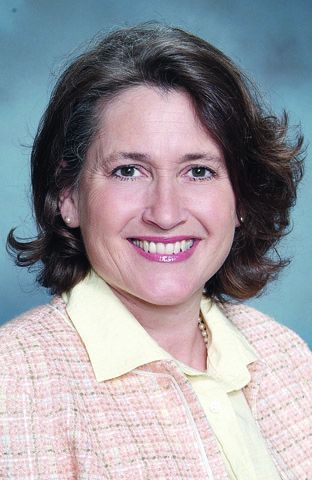PORT ANGELES — Whistle-blower complaints from 2013 against Sheila Roark Miller, Clallam County’s elected land-use director, are on hold until county commissioners decide what to do about them.
Commissioners Mike Chapman and Jim McEntire said last week they want nothing to do with deciding the validity of the complaints against the nation’s only elected department of community development director because she is an elected official.
Chapman said the commissioners might appoint an administrative law judge to adjudicate the matter.
Commissioner Mike Doherty said he wants to read a 57-page report from Portland, Ore.-based Bullard Law that details the complaints and alleged morale problems in the county Department of Community Development before he decides what should be done.
The report has not been made public.
Complaints, including one that alleges Roark Miller backdated a permit to allow the applicant to avoid complying with the Dungeness water rule, have cost the county $79,970 in legal and investigative fees paid to Bullard Law and the law firm’s investigator, former FBI agent Ken Bauman.
The state Attorney General’s Office declined to file any of seven potential criminal charges, including felony injury to a public record, that were outlined in the report and left it up to the discretion of the county Prosecuting Attorney’s Office to pursue the matter.
Ongoing investigation
The state Auditor’s Office also has an ongoing fraud investigation related to the backdated permit, agency spokesman Thomas Shapley said last week.
Clallam County referred the Bullard Law report to the Auditor’s Office, County Administrator Jim Jones said Thursday.
The whistle-blower complaints contained in the report could result in a determination that Roark Miller committed civil violations of county administrative policy or employee rights, Jones said.
“Way too much of the county’s resources have been spent on something that was found to be a non-issue all along,” Roark Miller said in a recent interview.
“There was just nothing there.”
With the recent change in prosecuting attorney to William Payne, she predicted that the whistle-blower complaints soon will be resolved.
She called the civil investigation “a technicality” in an interview Thursday.
“Whatever loose ends there are are being tied up with the representatives I have and the county,” she said.
As far as potential employee-rights violations, “everything is still in good order,” she said.
“I’m looking forward to having this long behind me.”
Morale in the DCD “seems to be good,” Roark Miller said, adding that there have been staff changes and additions over the past two years.
“Sometimes, a fresh perspective helps morale,” she said.
“It’s kind of like, if you know what’s going on in the real world out there, you’d be more thankful about having a good job and good benefits, and think things are not as bad it seems,” Roark Miller added.
Won’t read report
Chapman and McEntire said Thursday they do not believe the matter should be decided by the commissioners and added that they do not intend to read the Bullard Law investigative report when it becomes available.
“It’s not something I’m interested in reading because it’s none of my business,” Chapman said.
“It’s between an elected official and employees,” he added.
“I have no role to sit in any capacity over another elected official.
“She answers directly to the voters of Clallam County.”
Assigning an administrative law judge to determine the validity of the complaints “is a whole lot better than commissioners doing it,” Chapman said, adding that he wants to hear from the new prosecuting attorney what he wants to do.
McEntire said commissioners have budgetary and legislative roles but a “totally nonsupervisory role” over elected officials.
“I just don’t think it’s right for one elected body to sit in judgment of another elected person,” McEntire said.
Doherty said the commissioners should at least read the investigative report.
“The taxpayers paid for it, and the public has the expectancy that someone would look over that report,” he said.
Within her authority
After reviewing the Bullard Law report, state Assistant Attorney General Scott Marlow said it was within Roark Miller’s authority as DCD director to backdate the permit, which she admitted doing.
The report grew from a Feb. 21, 2013, whistle-blower complaint about a department employee’s inspection of her building site while the employee was off the clock.
Roark Miller was not criminally liable because the contractor, not Roark Miller, called the employee to do the site inspection, Marlow decided.
The Bullard Law report also said she did not pursue enforcement action related to a suspected unpermitted dwelling.
Marlow said it was within her purview not to pursue enforcement action.
Payne said Thursday he had not yet reviewed a response to the report from Roark Miller’s county-paid attorney.
“The matter is on top of my office’s list to resolve, and we will do so in due course,” Payne wrote in an email.
Voters amended the county charter in 2002 to make the DCD director an elected post.
Roark Miller was elected in 2010 after 21 years as a department employee. Her annual salary is $74,150.

